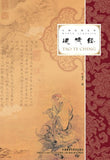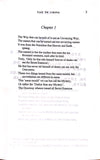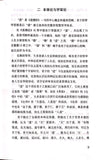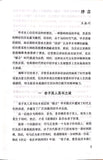TAO TE CHING 道德经(汉英对照版)
TAO TE CHING (Englisch-Chinesisch) #ChinaShelf
TAO TE CHING, auch bekannt als "Tao De Jing", "Dao Zhen Jing" und "Fünftausend Wörter", ist ein Werk vor der Teilung der Prä-Qin-Philosophen im alten China. Das ist eine wichtige Quelle der taoistischen Philosophie. Das Tao Te Ching ist in zwei Kapitel unterteilt, den ersten Teil des ursprünglichen "De Jing" und den zweiten "Dao Jing" ohne Aufteilung in Kapitel, der später verändert und in Kapitel unterteilt wurde. "Tao De Jing" ist das erste vollständige philosophische Werk in der chinesischen Geschichte.
Autor: Lao Tzu. Übersetzer: Arthur Waley
Lao Tzu, auch bekannt als Lao Tan und Li Er, stammte in Zeit der Frühlings- und Herbstannalen, im Staat Chu. Er war ein großer Philosoph und Denker im alten China und Begründer des Taoismus, eine Berühmtheit in der Weltkultur und eine der hundert historischen Berühmtheiten der Welt. Sein Gedanken wird im Buch "Tao De Jing" (auch bekannt als "Lao Zi") zusammengefasst. Die Essenz seiner Werke ist die einfache Dialektik, die die Herrschaft befürwortet, indem sie nichts tut, und seine Theorie hat einen tiefgreifenden Einfluss auf die Entwicklung der chinesischen Philosophie. Im Taoismus wird Lao Tzu als taoistischer Vorfahr verehrt.
Auszug
To be always talking is against nature. For the same reason ahurricane never lasts a whole morning, nor a rainstorm allday. Who is it that makes the wind and rain? It is Heaven-and-Earth) And if even Heaven-and-Earth cannot blow orpour for long, how much less in his utmance should man?Truly, ff one uses the Way2 as ones instalment, the resultswill be like the Way; if one uses the power as onesinsmnnem, the results will be like the power. If one useswhat is the reverse of the power, the resultswill be thereverse of the power. For to those who have conformedthemselves to the Way, the Way readily lends its power.To those who have conformed themselves to the power,the power readily lends more power. While to those whoconform themselves to inefficacy, inefficacy readily lends itsineffectiveness. It is by not believing in people that youturn them into liars.
Inhaltsverzeichnis
上篇:道经 道可道,非常道
章 玄之又玄 众妙之门
第二章 无为主事 不言之教
第三章 淡泊名志 宁静致远
第四章 挫锐解纷 和光同尘
第五章 多言数穷 不如守中
第六章 谷神不死 是谓玄牝
第七章 天长地久
第八章 上善若水
第九章 功遂身退 天之道
第十章 养生修行
第十一章 有之为利 无之为用
第十二章 去彼取此 清静无为
第十三章 宠辱不惊 乃真贤士
第十四章 不见其首 不见其后
第十五章 微妙玄通 深不可识
第十六章 虚极静笃
第十七章 悠其贵言 功咸事遂
第十八章 大道废 有仁义
第十九章 少私寡欲
第二十章 独异于人 贵于食母
第二十一章 孔德之容 惟道是从
第二十二章 曲则全者 全而归之
第二十三章 希言自然
第二十四章 企者不立 跨者不行
第二十五章 师法自然 可以成“道”
第二十六章 重为轻根 静为躁君
第五十五章 物极必反
第五十六章 为天下贵
第五十七章 无为而治
第五十八章 祸兮福倚 福兮祸伏
第五十九章 治人事天 莫若啬
第六十章 德交归焉
第六十一章 各得其所 大者谦下
第六十二章 道者 万物主奥
第六十三章 终不为大 能成其大
第六十四章 慎终如始 则无败事
第六十五章 与物反矣 至于大顺
第六十六章 为百谷王 其善下之
第六十七章 我有三宝 持而保之
第六十八章 不争之德 用人之力
第六十九章 哀兵必胜
第七十章 被褐怀玉
第七十一章 知不知上 不知知病
第七十二章 自知自爱 不自见自贵
第七十三章 天网恢恢 疏而不失
第七十四章 民不畏死
第七十五章 无以生为者 是贤于贵生
第七十六章 强大处下 柔弱处上
第七十七章 为而不恃 功成不处
第七十八章 弱之胜强 柔之胜刚
第七十九章 天道无亲 常与善人
第八十章 小国寡民
第八十一章 信言不美
附录:古本道德经
下篇:德经上德不德,是以有德
Taschenbuch: 172 Seiten
ISBN-13: 9787560013725
Abmessungen: 14.8 x 21 cm










